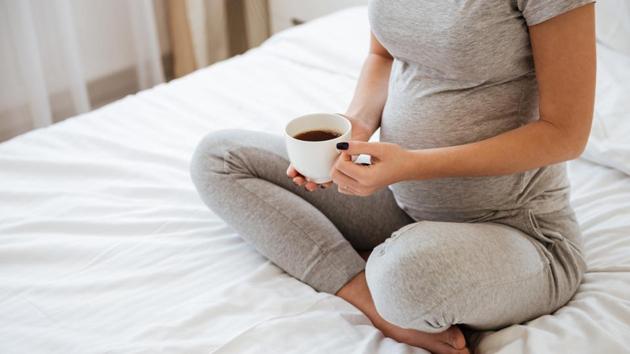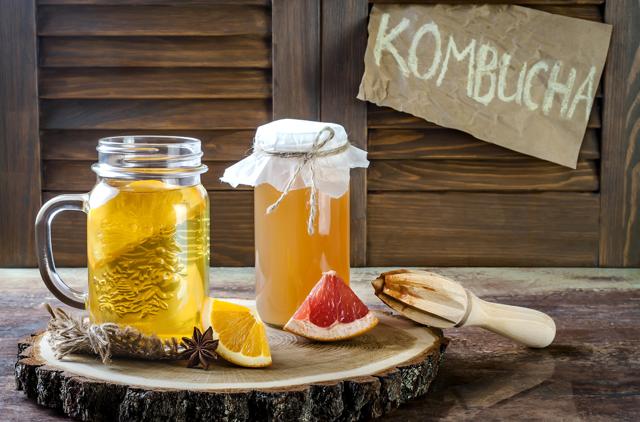Coffee in pregnancy can make children gain weight, swap caffeine with these
If you are pregnant, your gynaecologist will advise you cut out coffee and alcohol from your diet. The caffeine in the coffee or any caffeinated drink is absorbed by the bloodstream and distributed to the tissues.
Wine, lox, cheese: there are a lot of things you give up when you become pregnant. But the one thing that pinches the most is kicking the caffeine habit. While there haven’t been any concrete studies conducted yet to explain the exclusions, this recent study answers some questions regarding caffeine.

The study says that exposure to moderate to high levels of caffeine while in the womb is linked to excess weight gain in your child’s early years. Researchers were prompted by the general guidelines most new mothers are given: to cut down caffeine.
How does caffeine affect the foetus
When a pregnant woman drinks coffee, or any caffeinated drink, the caffeine in it is readily absorbed by the bloodstream and distributed to the tissues. From here it crosses the placenta and reaches your tiny growing wonder in the womb. Excessive intake of coffee has been linked to an increased risk of miscarriage and restricted foetal growth.
Apart from this, excess caffeine can also cause arrhythmia or irregular heart rhythm, which is dangerous. If consumed in larger quantities, caffeine can make babies dependent on it. Once born, they may show symptoms of withdrawal, similar to what happens in the case of drugs.
Method for study
The researchers wanted to try and find out if caffeine intake during pregnancy might also be associated with excess weight gain in the child’s early years. They, therefore, drew on just under 51,000 mother and infant pairs. At 22 weeks of pregnancy, the mums-to-be were asked to quantify their food and drink intake from among 255 items, including caffeine, using a specially adapted Food Frequency Questionnaire.
Sources of caffeine included coffee, black tea, caffeinated soft/energy drinks, chocolate, chocolate milk, sandwich spreads; and desserts, cakes and sweets. Their children’s weight, height, and body length were subsequently measured at 11 time points: when they were 6 weeks old; at 3, 6, 8, and 12 months; and then at 1.5, 2, 3, 5, 7, and 8 years of age.
Conclusion
Women with a very high caffeine intake during their pregnancy were more likely to be poorly educated and to have been obese before they got pregnant. Average, high and very high caffeine intake during pregnancy were associated with an increased risk--15, 30, and 66%, respectively--of faster excess growth during their child’s infancy than low intake, after taking account of potentially influential factors.
And exposure to any caffeine level while in the womb was associated with a heightened risk of overweight at the ages of 3 and 5 years, although this persisted only for those 8-year-olds whose mums had had a very high caffeine intake during their pregnancy.
Children exposed to very high levels of caffeine before birth weighed 67-83 g more in infancy (3-12 months); 110-136 g more as toddlers; 213-320 g more as preschoolers (3-5 years); and 480 g more at the age of 8 than children who had been exposed to low levels.

Best alternatives
A good caffeine kick can do wonders to your morning routine. We know that. But if you have to avoid it, here are some alternatives.
1) Kombucha: This hipster wonder drink contains 1/3rd the amount of caffeine compared to the tea it is made with.
2) Coconut water: It is light and refreshing and beneficial to mothers-to-be as it helps keep you cool.
3) Apple Cider Vinegar: There are many benefits of apple cider vinegar: it helps keep UTI at bay, it also helps fight morning sickness. Though ACV is considered safe to be consumed, it is best to consult your doctor before you do so.
Follow @htlifeandstyle for more
Catch your daily dose of Fashion, Taylor Swift, Health, Festivals, Travel, Relationship, Recipe and all the other Latest Lifestyle News on Hindustan Times Website and APPs.
Catch your daily dose of Fashion, Taylor Swift, Health, Festivals, Travel, Relationship, Recipe and all the other Latest Lifestyle News on Hindustan Times Website and APPs.






